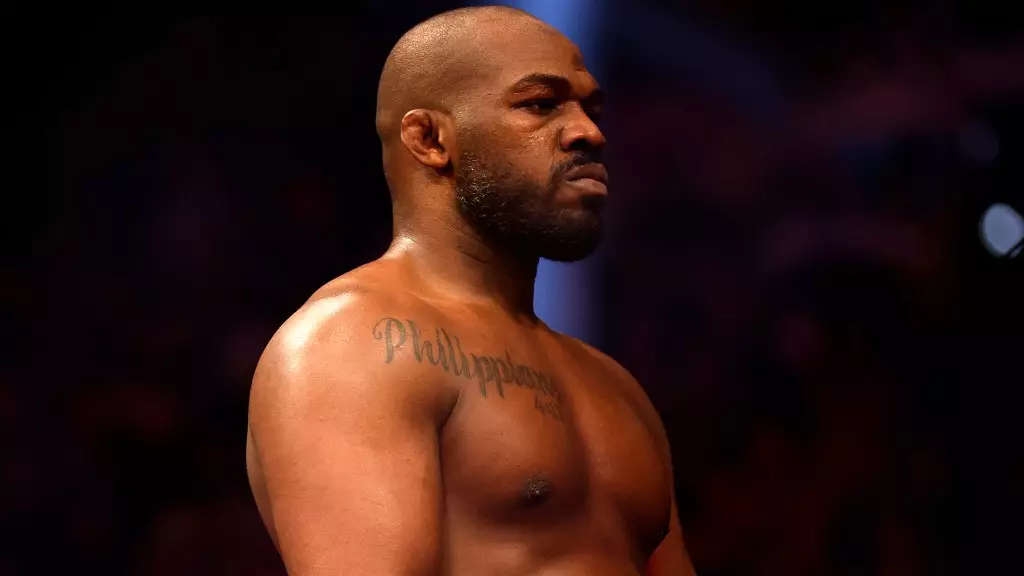As UFC 309 approaches, conversations around Jon Jones’ legacy are reaching a fever pitch, particularly with the spotlight on his heavyweight title defense against Stipe Miocic. Gibsons’ comments highlight not just the significance of this bout, but also the broader implications it carries for Jones’ illustrious career. Few fighters in mixed martial arts have commanded such respect as Jones, who boasts a record of 27 wins and a solitary loss. However, the notion that this could be Jones’ final fight adds an emotional charge to the encounter, intensifying the implications for both him and the sport itself.
Retirement is a complex subject in the realm of combat sports, especially for athletes like Jones, who have achieved so much yet continue to be propelled by ambitions and the love for their discipline. Gibson’s perspective underscores the importance of knowing when to step away. With age, the inherent risks in fighting grow, making it essential for fighters to identify their exit points before the sport dictates it for them. Jones stands at a crossroads that most athletes face—balancing the visceral thrill of competition with the wisdom that comes from a storied career. His insistence that Miocic might be his last challenger speaks volumes about the mental landscape of a champion contemplating his legacy.
Gibson’s belief that Jones is in the best shape of his career is a contentious statement when considering past performances, notably his swift and dominant victory over Ciryl Gane at UFC 285. In that controversial debut as a heavyweight, Jones showcased refined techniques and strategic capabilities, preemptively silencing critiques about his transition to a heavier weight class. Observers are keenly aware that Jones’ skill set could propel him to further victories; however, they must also be mindful of the law of diminishing returns that comes with age. This fight against Miocic will not only be a test of skill and strategy but also a gauge of physical limitations.
Aside from the technicalities of fighting, there lies a narrative woven with personal motivations and future aspirations. Gibson asserts that Jones is more than an athlete; he is a multifaceted individual poised to make choices beyond the octagon. Acknowledging the desire for family involvement and exploring new career avenues, Gibson acknowledges the reality that every fighter must ultimately face—a time when the spotlight fades, and other duties call. Jones has the unique advantage of having achieved so much in the sport that he can afford to consider his next moves thoughtfully.
As the countdown to UFC 309 continues, fans, analysts, and enthusiasts alike are glued to the potential outcome. Can Jones successfully assert his dominance one last time with a convincing victory over Miocic? Or will this be a poignant farewell to one of the sport’s all-time greats? Regardless of the outcome, this fight has the makings of a historic chapter in mixed martial arts history, laden with the weight of legacy, identity, and choice. It is a moment that not only defines Jon Jones but also sets a precedent for what it means to leave the fight game with dignity.

